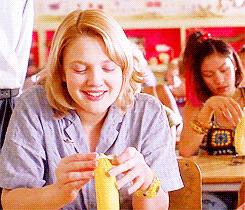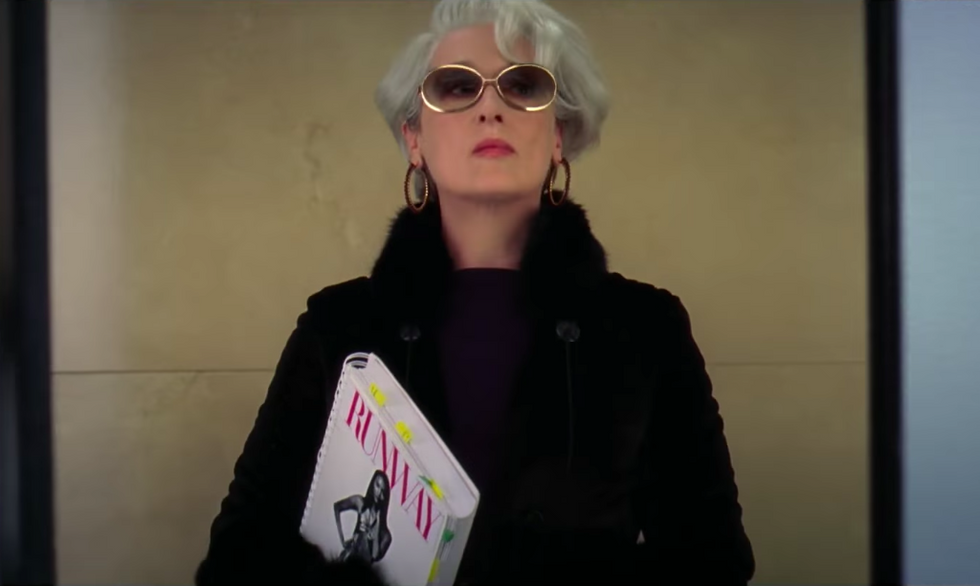I'll admit, I've had a love affair with rom-coms from the 2000s for a long time (and still do). In all the cheesy rom-coms I watched, I noticed a common trope: the protagonist almost always works in journalism (mainly writing for lifestyle magazines).
I looked at the industry with a set of rose-colored glasses based on the number of movies I watched. Based on the protagonists' portrayals, I saw glamorous young women working in trendy spaces while getting paid to work on cool projects such as creating new branding initiatives and attending fashion events.
I saw a stress-free world of beauty samples, editorial shoots and an endless supply of designer clothing. You know what I didn't see? Pulling out your hair at four in the morning and panicking because your main source did not send an email. I didn't see journalists trying to come up with a pitch after being burnt out for the past few issues.
It seems as if the fictional world of movie journalists are taken straight out of an influencer's social media account. I mean, who has the funds to live in a densely populated city such as New York, all while driving a decent car and having a fully stocked designer wardrobe? Making $32,000 a year as an entry-level journalist cannot get you a one-bedroom condo in an expensive neighborhood with a walk-in closet and modern furniture.
Of course, fictional journalists are not perfect. We all have our flaws and make mistakes from time to time. However, it isn't safe to say that Hollywood provides an accurate depiction of female journalists (who just so happen to all be white females and not a single female journalist of color). Below is a listicle of the faux-pas of certain practices and aspects portrayed in film.
Falling in love (or perhaps sleeping with) a source
 Giphy
GiphyA major plotline in a majority of rom-coms (think "How to Lose a Guy in 10 Days" and "Trainwreck") is the protagonist falling in love with the subject of her article, and thus, getting caught up in the whirlwind of her personal life.
Not only is this a major ethical issue, but it has the ability to sway the tone of the article and border into a conflict of interest or a bias. Journalists, do not sleep with your sources.
Pursuing a certain field without interest
"Following your passions" may be a cliché phrase when referring to career aspirations, but it is cliché for a reason.
If you aren't passionate about what you're writing about, it clearly shows in your writing. Take, for example, Anne Hathaway's character, Andy Sachs, in "The Devil Wears Prada." When first being introduced to Miranda Priestly, the Editor-In-Chief of Runway Magazine, she does not take her job seriously, quoting that she isn't familiar with "this stuff" (fashion journalism).
Another example would be Isla Fisher's character, Rebecca Bloomwood, in "Confessions of a Shopaholic." A major theme of the film is Rebecca taking up a job at Successful Savings magazine, despite her shopaholic attitude, under the impression she'll get hired at another fashion magazine.
At the end of the day, pursuing your interests will pay off in the long run.
Going Undercover

Never Been Kissed (1999)
GiphyAs interesting as this sounds for a film plot (think of Drew Barrymore's "Never Been Kissed"), going undercover for an article or not revealing your true intentions as a reporter is a major faux pas. Not only is this unethical, but it damages the trust between your sources and yourself as a journalist.
Going undercover and falling in love with your source (see above) is especially a bad combination. Don't go breaking hearts for article views.
At the end of the day, female journalists are portrayed in a certain light in order to add depth to a plotline and make the film seem more interesting. As much as I can protest over the lack of female journalists of color in Hollywood films, or the lack of female journalists in fields other than fashion journalism, one can only wait until someone writes an accurate screenplay.






 The minimum wage is not a living wage.
StableDiffusion
The minimum wage is not a living wage.
StableDiffusion
 influential nations
StableDiffusion
influential nations
StableDiffusion












